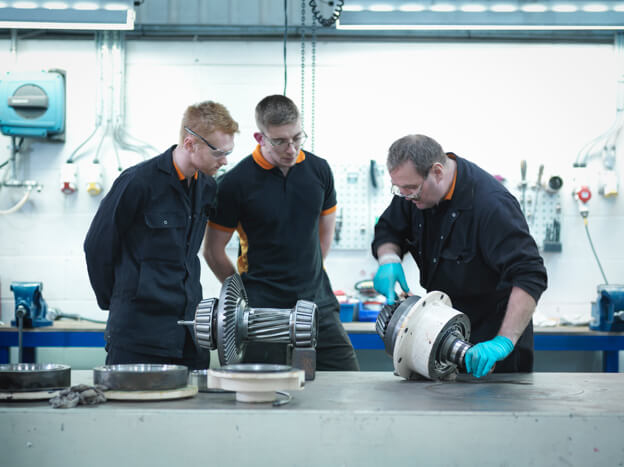The EV is the spearhead of a much wider transformation – the move towards e-mobility. This is a multidisciplinary field that brings together mobility, energy, services and IT.
E-mobility has the potential to create not only new jobs but entirely new sectors, business models and services. From drivetrain technology and battery information systems to charging infrastructures, there will be a host of job opportunities both in-car and out-of-car.
Four opportunities from in-car jobs
The EV offers a wide array of opportunities across four key areas:
1. Transitional technologies and EV production
While questions are being asked by concerned auto sector unions, there’s good news in the short term for traditional production line workers. By 2030, the number of auto jobs is predicted to increase because of ‘stepping stone’ technologies including plug-in hybrid electric vehicles (PHEVs):
- Hybrids require 50% more human-hours to create when compared to cars using an ICE only;
- 25,000 new jobs will be created by 2030 because of hybridisation, representing a growth rate of 22%.
The number of EV-only vehicles will inevitably supersede PHEVs past 2030 though, meaning automakers will be required to retrain existing workers for EV-only production lines. Alternatively, they can redeploy them elsewhere within the organisation, preferably in local EV component manufacture to secure the long-term future of workforces. For instance, Mercedes-Benz owner Daimler AG is already drawing up plans to make EV components in-house instead of sourcing them from third parties.
2. Power sources
Manufacturers of the power sources required to run EV vehicles, whether lithium (or other) batteries or hydrogen fuel cell-based, are set for rapid growth. And the race is now on for competing territories keen to capitalise on this lucrative potential.
Europe in particular lags behind Asia and North America in battery production capacity with only 3% of the sector. To secure and create jobs, these territories must move fast to gain a foothold, a fact that’s already been realised by several key players:
- Volkswagen will spend $60bn on battery production and believes the auto sector will need to build 40 vast battery factories by 2025, a potentially huge source of employment;
- Daimler is investing in its own battery production capacity rather than relying solely on existing Asia-based suppliers.
For those agile enough, the rewards will be substantial. In Coventry, in the UK, for example, 10,000 new jobs are being created in a new dedicated national battery centre.

3. Autonomous vehicles
The rapid evolution of EVs goes hand in hand with the growth of autonomous driving which requires a range of innovative technologies. Hardware developers and software engineers are already in high demand in the auto sector, with autonomous vehicle engineers particularly sought after.
With more than 50 major companies working on autonomous vehicles/full autonomous-vehicle systems at this time (plus a host of smaller firms), there’s already significant demand for skilled IT workers across the board, especially those qualified in artificial learning, deep learning and cybersecurity.

